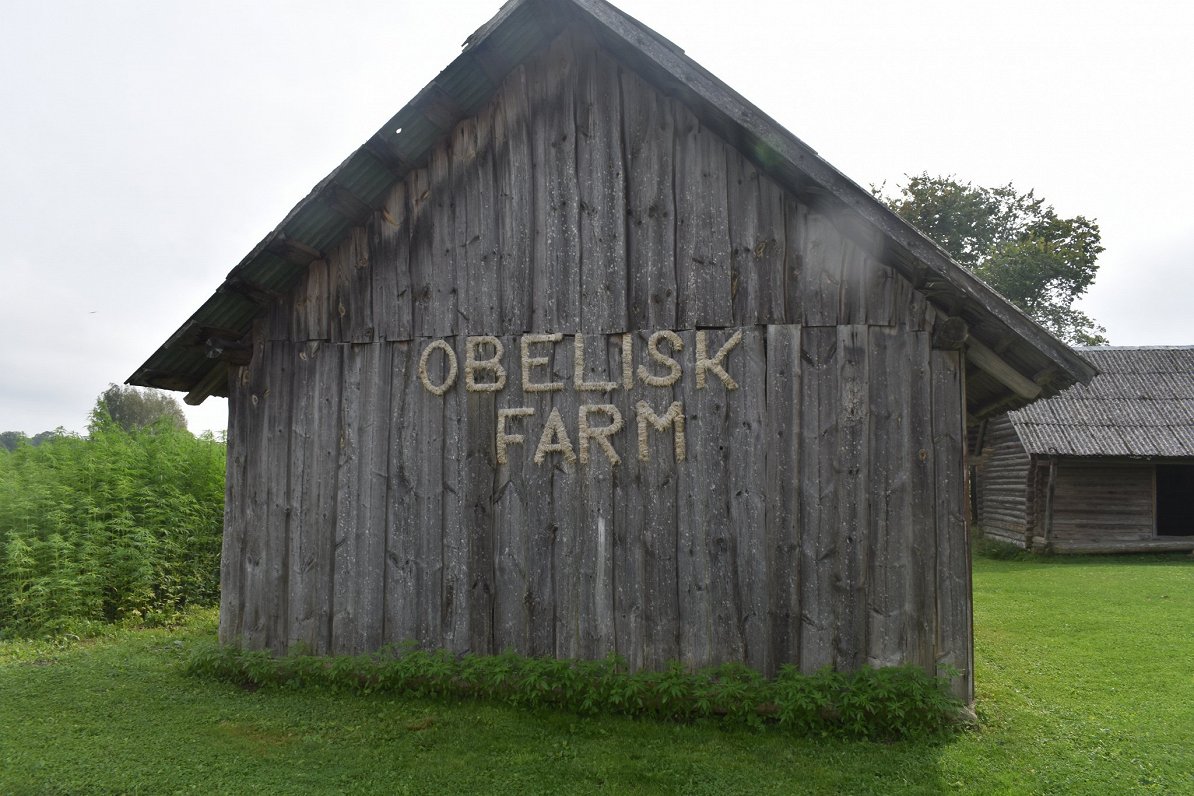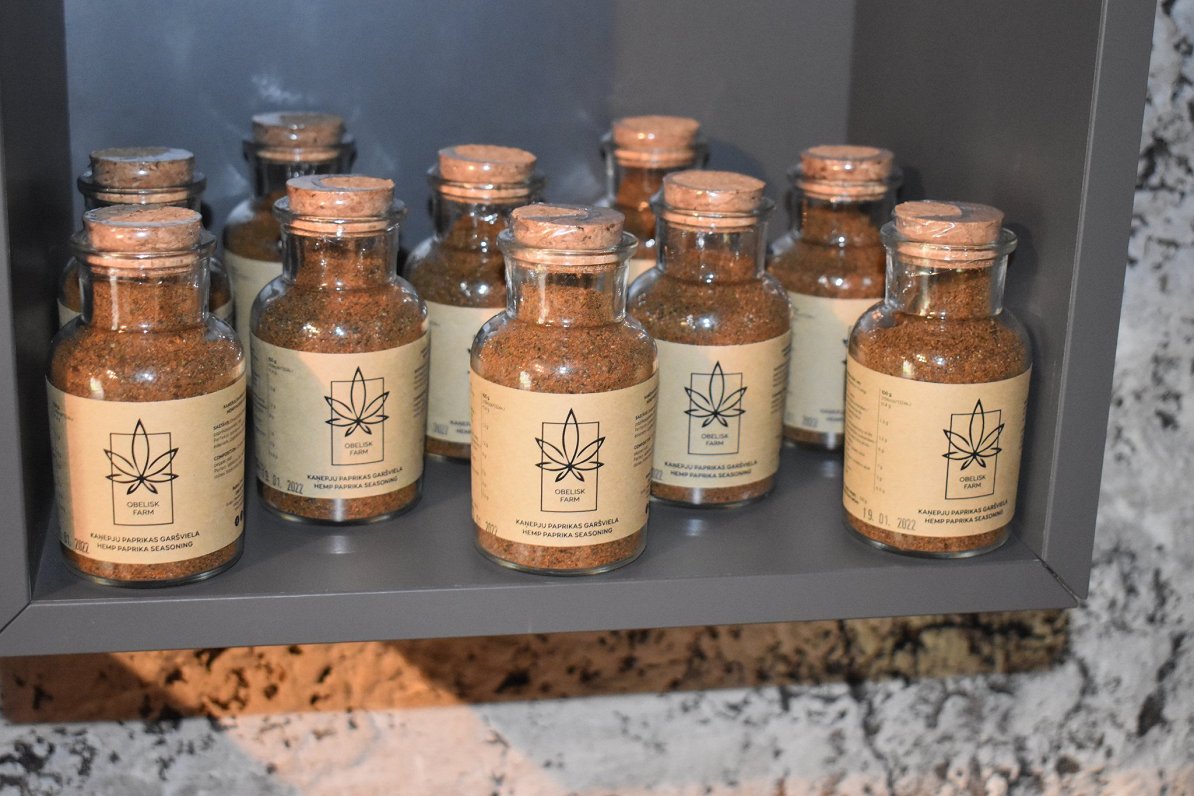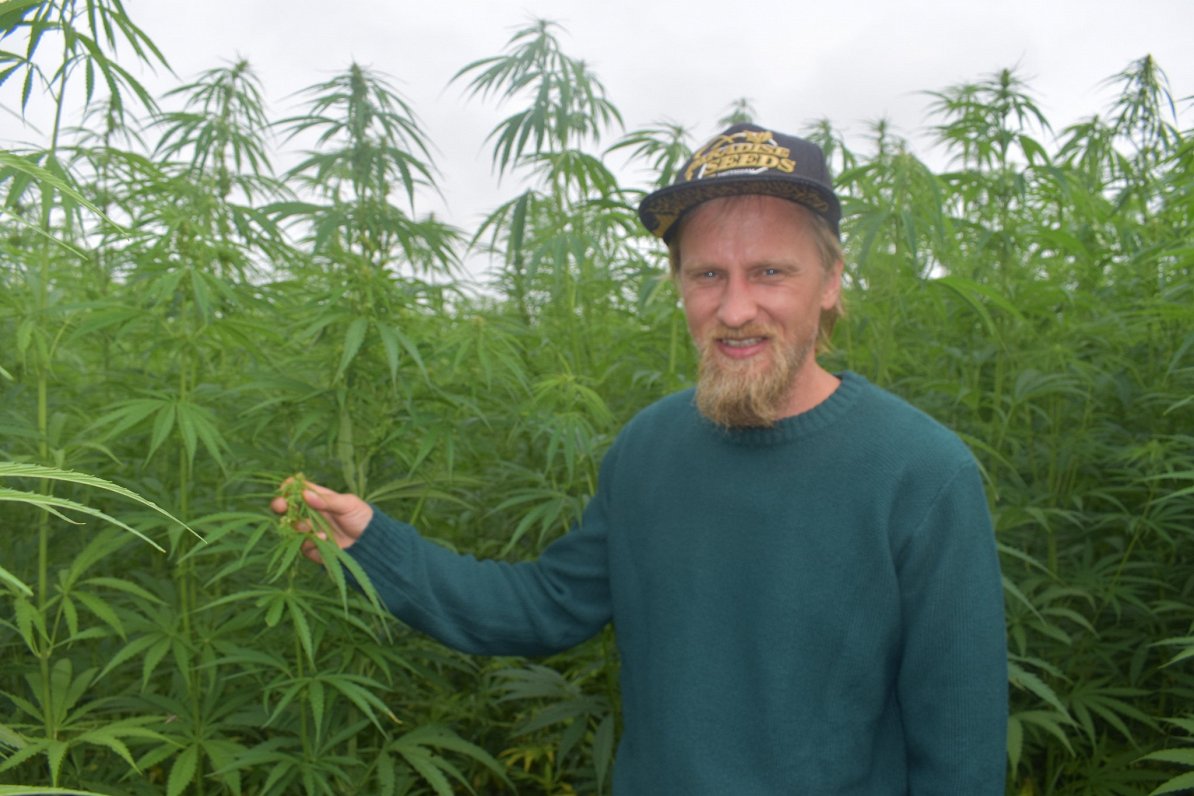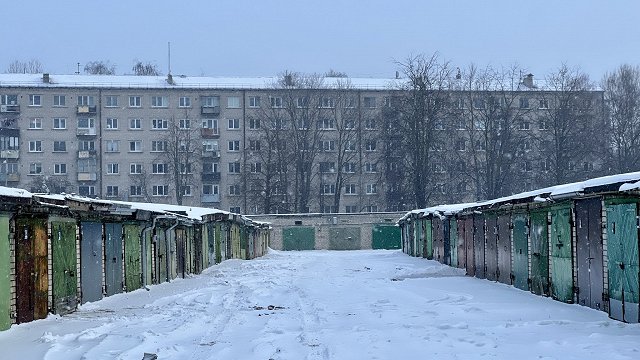On a road trip through the Latvian countryside you might spot all kinds of crops, from rye to canola. And if you keep your eyes peeled, you might even glimpse the unmistakable green fingers of hemp plants swaying in the breeze.
Before you call the drug squad (or whip out your bong, if you are so inclined), you should know that these plants won’t get you high. But for centuries, Latvians have been using hemp as a natural insect repellent, to make rope and as a vitamin-rich food source. And singing folk songs about it.
Traditionally, hemp seeds are crushed to obtain a dark, oily paste, which is thickly spread on bread or boiled potatoes. Today, a new generation of farmers is taking this culinary heritage in different directions.
“We aim to be tasty, to give people salty or sweet or other flavours, to break the stereotype that hemp foods are healthy but a bit bland” says Andris Višņevskis, who with his wife Debora runs Obelisk Farm near Varakļāni, about 220 kilometres east of Rīga.

Andris’ and Debora’s love story spans a continent. He grew up near Rīga, while she is a came to Latvia a decade ago on an Erasmus scholarship. They met at a student party in Rīga, then lived for several years in Debora’s native Portugal and London, before the city blues became too much.
“We desperately wanted to live in the country, and here we are!” says Andris.
They searched for an affordable rural corner to raise their two children, and finally settled on the 2.5- hectare farm at Obeliškas village (from which the property’s name is derived) in Latgale. For the first few years, they kept a small garden and Andris earned their living doing construction work in Riga. They eventually decided to try and make money from their land, and with only knowledge gleaned from the internet, started planting hemp.
“It wasn’t easy at first, as we arrived from the city totally ignorant. The first autumn, we asked a neighbour with a harvester to come and help us, but he took one look at the field and just drove away,” Andris laughs. “But we learned from our mistakes and now we’re all working from home and earning our living from hemp.”
Their products are also the result of trial and error. After obtaining hemp oil, they wondered what to do with the seed shells. Although these are high in protein, they are usually regarded as a waste product. The couple decided to grind them into a powder and add the mass to peanuts to make peanut butter. They have since branched out into muesli bars, spice mixes and lollies, as well as tea from hemp flowers.
“We are modern people ourselves, and we seek to cater to the tastes of contemporary consumers,” says Andris.
Andris is a qualified food technologist, while PR specialist Debora handles the marketing. The family sells their wares over the internet, at fairs and at the farm door. They have also set up a small hemp museum in their barn and welcome pre-booked tour groups for paper-making workshops. Andris has put his building skills to good use by insulating the family home with hemp, and he runs seminars on the diverse uses of the material.
All the plants are of the Cannabis Sativa variety, which unlike Cannabis Indica contains negligible amounts of THC, the chemical which gives pot its narcotic kick. The enterprise registers its seeds with the Rural Support Service and is subject to spot checks by the State Plant Protection Service to make sure there is nothing illegal going on.

Ironically, because the plants at Obelisk Farm have both male and female organs on the one stalk, the males would turn any potent buds to seed for miles around, making it a poor location for dope growing. Since hemp thrives without pesticides, it is a prime candidate for support under the EU’s Green New Deal.
Andris confesses to having puffed a joint or two in his youth, and he supports the decriminalisation of marijuana so that people can grow a few plants for their own use. But his mission is to educate people about all the other uses of hemp. This is easier in Latvia with its innocent traditions than in Portugal, for example, where the locals view it as a drug and think that any edibles do more than just fill the tummy.
“Right now, the hemp industry is small, but it is also diverse and has enormous potential,” says Andris. “We want to put an end to any suspicions, because they have no basis in reality. And we’ve seen over the last four years how people are getting better educated about it.”

































